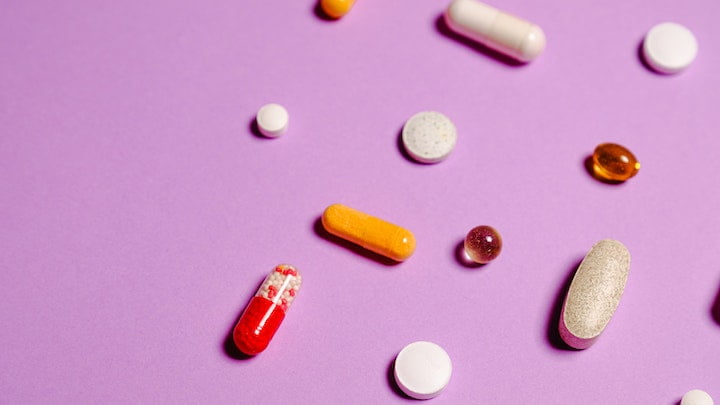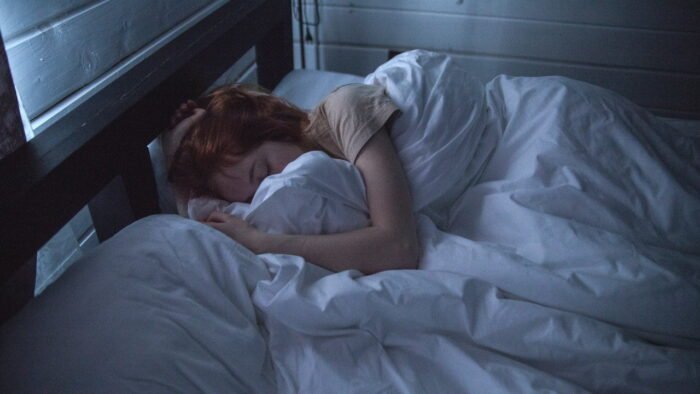Zoloft is a popular antidepressant, and alcohol is a recreational substance used the world over.
The two substances are not supposed to be mixed, and this is due to a range of effects that occur when they are both exposed to the brain at the same time.
Zoloft: everything you need to know

Zoloft, the brand name of Sertraline, is an antidepressant medication. Most commonly used as a means of helping ease the symptoms of depression, it can also be used to treat panic disorder, obsessive-compulsive disorder (OCD), and post-traumatic stress disorder (PTSD).
When taken, Zoloft boosts the levels of serotonin in the brain while simultaneously blocking its reuptake. This pleasure hormone works to improve an individual’s mood and abate the symptoms of depression and stress that they are feeling.
It is advised that Zoloft be taken once a day. Taking it at the same time each day optimises its effectiveness, and the common dosage for adults tends to be 50mg. To reach its maximum effectiveness, individuals usually have to take the drug for around 4 weeks.
Some other important key facts about Zoloft include:
- It is provided primarily in the form of tablets, but is availably strictly by prescription only.
- Although Zoloft is known to have less side effects than alternative antidepressant medications, it can cause headaches, nausea, and poor sleep.
- When taking Zoloft, individuals must not drink grapefruit juice. This can spike the sertraline levels in the body and increase the risk of side effects.
Although available in the UK via prescription, Zoloft does carry a dependence risk. This stems from the fact that the drug alters brain chemistry, and if relied upon for months or years in order to function, individuals can struggle to cope without it.
Is it safe to drink alcohol while using Zoloft?

A common question users of Zoloft ask is whether they can drink alcohol. Individuals are discouraged from drinking while taking Zoloft, largely due to the ways in which they both influence brain chemistry. The combination of their effects can be complex and unpleasant.
Zoloft, alcohol, and the brain
When an individual drinks alcohol, it takes effect on the brain’s neurotransmitters. As a depressant, alcohol suppresses the activity of the central nervous system (CNS), inhibiting the flow of signals and the activity of neurotransmitters.
This effect of alcohol means that it can skew the expected effects of taking Zoloft. Although most people will simply experience a greater degree of fatigue when these substances are taken together, other side effects can also occur.
Zoloft and alcohol: the short-term effects
In the hours following alcohol consumption with Zoloft in the body, individuals can expect to experience some of the following common side effects:
- Poor coordination and dizziness
- Drowsiness and loss of consciousness
- Headaches
- Intense spells of depression, leading to suicidal thoughts
- Nausea and vomiting
- Intense anxiety
- Mood swings
- Stomach pain and diarrhoea
- Poor reflexes and slow reaction times
Those who take Zoloft to combat their depression can find that the symptoms they wanted to treat are those that alcohol makes worse. For example, drinking can make them feel irritable, experience appetite loss, and promote feelings of worthlessness.
Zoloft and alcohol: the long-term effects
If alcohol is consumed consistently over a longer period of time while Zoloft is being taken, individuals can find themselves becoming impacted by long-term effects.
More detrimental to health, these consequences of mixing Zoloft and alcohol include:
1. Serotonin syndrome
Alcohol can influence serotonin production, causing it to rise. If individual drinks consistently, this effect of alcohol can combine with the effects of Zoloft to keep serotonin levels in the brain incredibly high.
Such high levels of serotonin can lead to the development of serotonin syndrome.
This condition can cause individuals to experience a rapid heart rate, see hallucinations, and slip into a coma. If not managed correctly, serotonin syndrome can be deadly.
2. Suicide
In the short-term, alcohol can negate the effects of Zoloft and cause individuals to experience suicidal thoughts. While these should settle once the effects of alcohol have worn off, consistently drinking alcohol can cause stronger and longer-lasting effects.
If Zoloft’s effects are being consistently negated, individuals can experience longer and more intense bouts of depression.
These can build up over time, and individuals can find that their suicidal thoughts turn into suicidal impulses, putting their life at risk.
3. Alcohol use disorder
Alcohol has pleasurable effects as well as those which offset Zoloft. Being drunk is a state associated with feeling happy, confident, and optimistic, and when the negative effects of drinking begin to surface, individuals can feel as though consuming more alcohol might help.
If this behaviour continues, however, individuals can begin to believe that alcohol is the solution to their low mood, rather than its cause.
Reinforcing consumption can cause the body to become dependent on it to function, locking individuals into addiction.
Can I use any other substances while taking Zoloft?

Once the complicated relationship between Zoloft and alcohol has been identified, it is normal to want to know which other substances the drug does not mix with.
In fact, there are several categories of substances that need to be outlined here, and they are:
- Heart medications – Zoloft can increase heart rate, so any substances that have an impact on the heart might cause a quickened or irregular heartbeat.
- Other antidepressants – Drugs similar to Zoloft can interact in strange ways with the drug. Even when taken after Zoloft use has stopped, the drugs can interact and cause high blood pressure.
- Herbal remedies – While information on these medicines is inconsistent, St John’s wort – a herbal antidepressant – can increase the risk of individual’s experiencing Zoloft’s side effects and must not be taken with it.
- Caffeine – Drugs like Zoloft can sometimes intensify the effects of caffeine. Caution must therefore be taken to reduce the risk of insomnia and heart problems.
Could I pause my Zoloft use in order to drink alcohol?

Is it possible for those who take Zoloft to temporarily suspend their use of the drug and drink alcohol? With drinking being such a popular means of celebrating and relaxing in modern life, Zoloft users may wonder to what extent they can minimise their risk.
Unfortunately, antidepressants like Zoloft require careful handling. Stopping and starting consumption can trigger withdrawal, resulting in individuals suffering with physical, psychological, and emotional consequences.
Stomach problems, anxiety, poor coordination: Zoloft withdrawal will be unpleasant, and consuming alcohol poses the risk of such symptoms becoming exacerbated.
The NHS recommends that individuals wanting to stop their antidepressant use should reduce their consumption gradually. Decreasing their dosage of the drug for about 4 weeks, will allow their body to adjust to the changes that result in brain chemistry.
How long does Zoloft remain in the body after use?

Due to the potential consequences of Zoloft and alcohol interacting in the body, how long the antidepressant remains in the body can be an important fact to know. However, the answer to this question can vary from person to person.
On average, Zoloft can remain within an individual’s urine for up to 9 days, and this is the primary way in which tests attempt to detect the drug’s presence. However, Zoloft can also remain in the hair for several weeks, the saliva for 48 hours, and the blood for up to 5 days.
There are a variety of factors, however, that can affect the duration of time Zoloft remains in a particular individual’s body. For example, their metabolism, age, Body-Mass Index (BMI), and exercise habits can all influence how quickly their body processes the drug.
Alcohol and depression

A large reason why Zoloft and alcohol do not mix well together is that they work towards opposite ends. Zoloft is taken to reduce the effects of depression, while alcohol is known for its complicated relationship with depression.
Not only does alcohol impact brain chemistry in a way that promotes feelings of sadness and hopelessness, but its physical effects promote unhealthy patterns of behaviour.
Hangovers are something we all understand. After drinking, the body and brain suffer the consequences, resulting in low mood and tiredness. To combat this, some individuals seek to consume alcohol again and reattain the happiness they felt while drunk [1].
Over time, however, alcohol’s depressant effects on the brain build up, causing lower lows and longer periods of depression. Individuals are then motivated to drink even more to feel good, reinforcing a cycle of declining mood and greater spells of depression.
It is also worth mentioning the effect that alcohol plays in terms of social and private life. Excessive drinking can ruin relationships and cause financial trouble, and these problems can exacerbate low mood and feelings of hopelessness.
Is it possible to overdose on Zoloft?

Zoloft is widely considered to have a low overdose risk. However, those who do overdose on it often do so as a result of taking another substance at the same time [2].
The signs of Zoloft overdose are similar to that of other drugs, and they can include [3]:
- Shaking
- Unresponsiveness
- Nausea and vomiting
- Agitation and anxiety
- Confusion and disorientation
If you discover an individual who appears as though they have overdosed on Zoloft, it is pivotal that you contact the emergency services immediately and request an ambulance. Once this has been done, stay with the individual and ensure they are safe.
Important things you might consider doing in this situation include:
- Regularly checking that the individual is breathing
- Clearing the space around them so that, in the event of a seizure, they do not harm themselves
- Monitoring an individual so that they do not choke if they vomit
I can’t stop drinking: getting the right help

If you are taking Zoloft and find that you cannot stop your alcohol consumption in spite of the associated risks, you might be struggling with alcohol use disorder. Refusing to quit drinking is a key warning sign of addiction, but there is an abundance of support available.
What support can I get for alcohol dependence?
By attending alcohol rehab, individuals can quit their alcohol consumption in a safe and effective way. It begins with detox, a treatment which helps individuals gradually reduce their consumption and become physically sober under the supervision of doctors.
Detox is made safe via the expertise and control of doctors. They can pace the process so that it coincides with the body’s ability to cope, and they can also prescribe drugs to limit withdrawal.
Once detox has been completed, individuals will be free of the physical demand their body feels for alcohol. This marks a huge step in their recovery, but more importantly, allows them to focus on the psychology of their substance abuse via therapy.
The importance of therapy
Therapy is a pivotal stage in the alcohol recovery process, and this is particularly true when it comes to those who drink alcohol alongside taking antidepressants. As outlined above, alcohol has a unique relationship with depression, and therapy is where this is explored.
The role of therapy is to help an individual identify the psychological and emotional motivations they have for consistent and excessive drinking. With those who take Zoloft, sessions can focus on depression and the negative consequences of it mixing with alcohol.
Once such motivations have been identified, an individual is supported in developing effective techniques for limiting the impact their triggers have on behaviour and optimising their quality of life.
Those who use Zoloft, for example, will often be supported in managing their depression via coping mechanisms and therapies, as well as optimising the drug’s effectiveness through the establishment of a structured consumption schedule.
OK Rehab: where we can support you
Living with depression, OCD, or PTSD can be very challenging. Medications are helpful in that they can support you in your everyday life, but managing their consumption and being aware of the risks associated with other substances can be a lot to handle.
That’s why OK Rehab is here to help. Whether you want more information on Zoloft, are anxious about the potential side effects it is having, or have concerns regarding your alcohol use, our team are on hand to help in any way we can and give you peace of mind.
If you need support, give us a call on 0800 326 5559 and let OK Rehab be there for you!
References
[1] https://www.rcpsych.ac.uk/mental-health/problems-disorders/alcohol-and-depression





